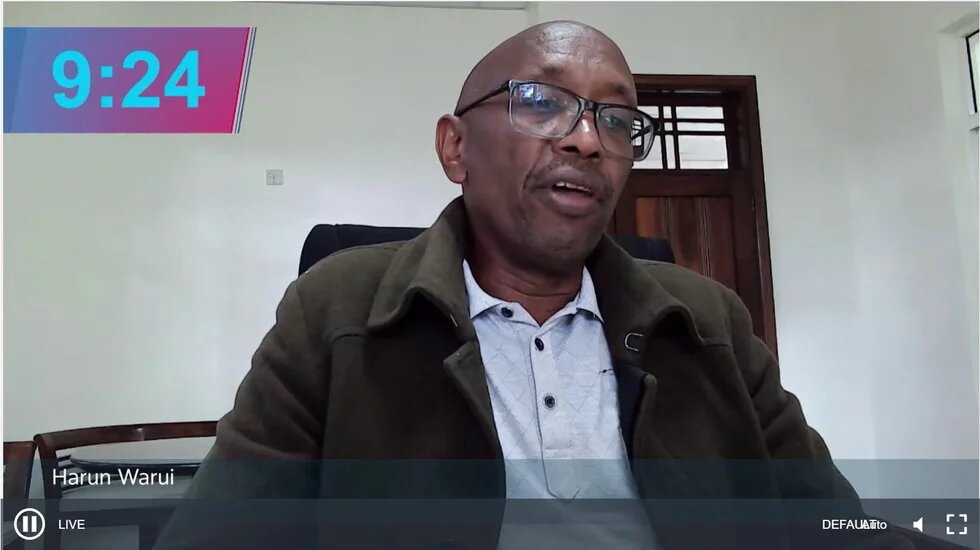At the Bayer Annual Stockholders Meeting this week, Harun Warui, Lead Coordinator for Agroecology and Food Rights at the Heinrich Böll Foundation, Nairobi, on behalf of the Coordination Against Bayer Dangers questioned Bayer’s vision for agriculture to countries in Global South.

At the Bayer Annual Stockholders Meeting this week, Harun Warui, Lead Coordinator for Agroecology and Food Rights at the Heinrich Böll Foundation, Nairobi, on behalf of the Coordination Against Bayer Dangers questioned Bayer’s vision for agriculture to countries in Global South.
In his speech, “Highly Hazardous Pesticides in Africa – A Crisis of Responsibility,” Warui’s spotlighted a significant policy shift in Kenya that was catalyzed by a landmark decision backed by a parliamentary process launched in 2019, informed by scientific reviews led by the Ministries of Agriculture and Health, with persistent input from civil society. Efforts that yield to the official withdrawal of eight pesticide active ingredients classified as Highly Hazardous Pesticides (HHPs) as at December 31, 2024.
This decision, Warui explained, was rooted in a foundational mandate: to protect public health and the environment on evidence that these HHPs pose serious risks, particularly to small-scale farmers, who represent the majority of agricultural producers across Africa and are most vulnerable to the adverse effects of toxic agrochemicals.
Kenya’s action, however, is not an anomaly. It signals a rising demand of regulatory reform across the continent. A growing coalition of civil society groups, scientists, and government agencies are calling for agricultural systems that nourish people, safeguard ecosystems, and do no harm.
“How does Bayer define ‘responsible innovation,’” Warui asked, “when it has profited, for example, from substances like Thiacloprid, whose global sales topped €3 billion by 2014 when it stopped production. Although not produced by Bayer anymore, Thiacloprid is one of the eight withdrawn active ingredients from the Kenyan market. Other harmful chemicals such as Imidacloprid and Glyphosate are still sold and used.”
The speech urged Bayer to rethink its approach in the Global South by actively investing in agroecological innovations, farmer-led solutions, and non-toxic alternatives that prioritize the health of both people and planet.
“Can Bayer genuinely speak of ‘Food for all—Hunger for none,’ the motto of the 2025 AGM while the people who grow that food are exposed to chemicals that harm their health and their futures?” he posed.
Warui’s closing remarks urged shareholders to take these concerns seriously when voting on whether to approve the actions of Bayer’s Management and Supervisory Boards. Instead, he called for support of the counter-motions raised by the Coordination Against Bayer Dangers—a coalition demanding transparency, justice, and a shift toward sustainable practices in global agriculture.
As the debate over the future of food intensifies, Kenya’s decision stands as a beacon—and a warning. It’s a reminder that communities in the Global South are no longer passive recipients of harmful products. They are demanding better—and they are acting.
Full speech available here